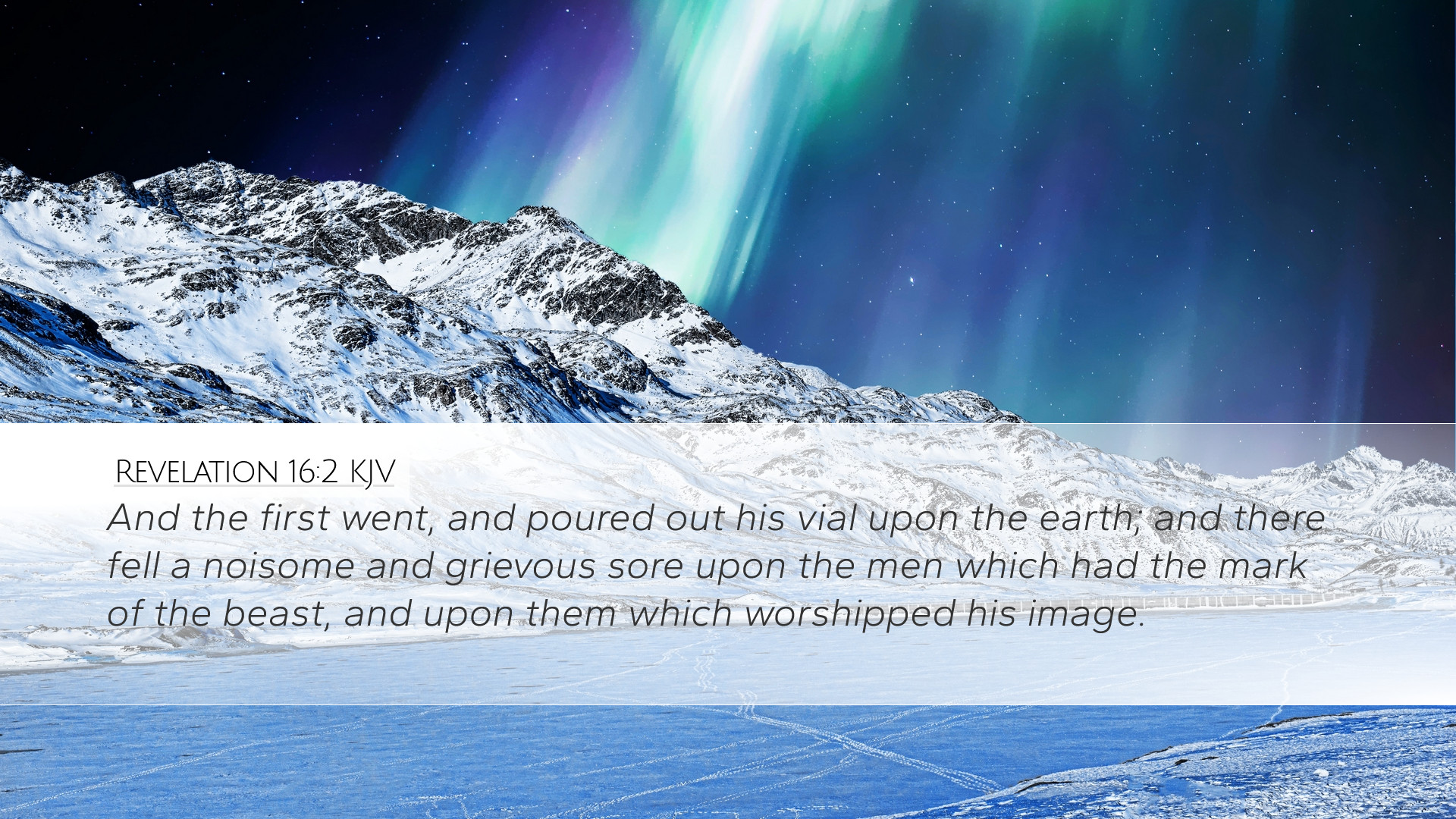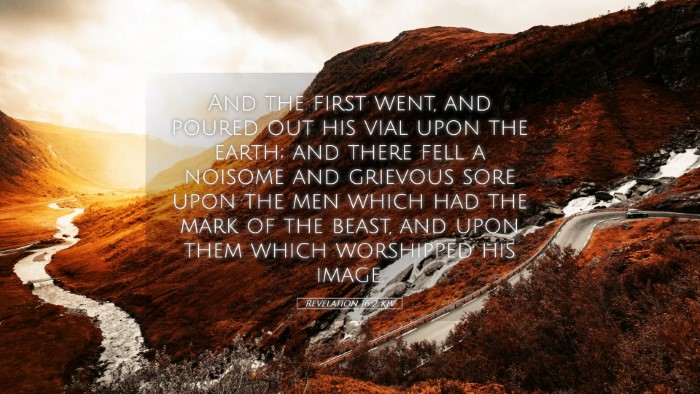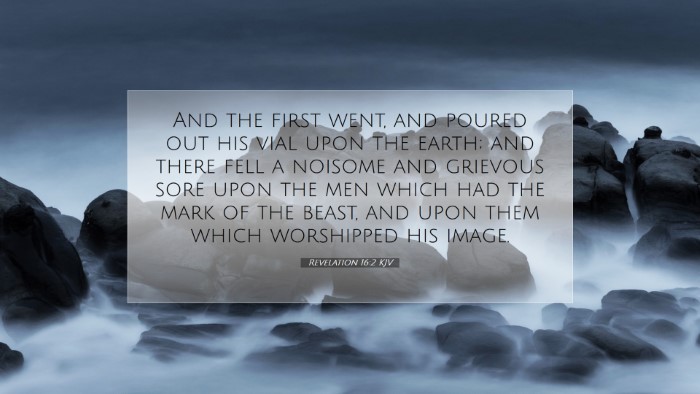Old Testament
Genesis Exodus Leviticus Numbers Deuteronomy Joshua Judges Ruth 1 Samuel 2 Samuel 1 Kings 2 Kings 1 Chronicles 2 Chronicles Ezra Nehemiah Esther Job Psalms Proverbs Ecclesiastes Song of Solomon Isaiah Jeremiah Lamentations Ezekiel Daniel Hosea Joel Amos Obadiah Jonah Micah Nahum Habakkuk Zephaniah Haggai Zechariah MalachiChapter
Revelation 1 Revelation 2 Revelation 3 Revelation 4 Revelation 5 Revelation 6 Revelation 7 Revelation 8 Revelation 9 Revelation 10 Revelation 11 Revelation 12 Revelation 13 Revelation 14 Revelation 15 Revelation 16 Revelation 17 Revelation 18 Revelation 19 Revelation 20 Revelation 21 Revelation 22Verse
Revelation 16:1 Revelation 16:2 Revelation 16:3 Revelation 16:4 Revelation 16:5 Revelation 16:6 Revelation 16:7 Revelation 16:8 Revelation 16:9 Revelation 16:10 Revelation 16:11 Revelation 16:12 Revelation 16:13 Revelation 16:14 Revelation 16:15 Revelation 16:16 Revelation 16:17 Revelation 16:18 Revelation 16:19 Revelation 16:20 Revelation 16:21

